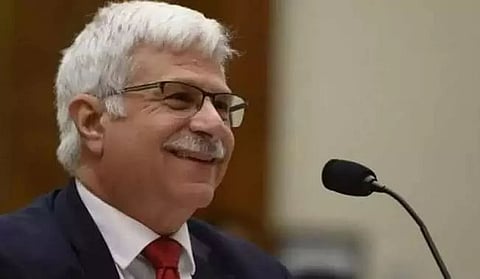
- Home
- Live Blog
- Breaking News
- Top Headlines
- Cities
- NE News
- Sentinel Media
- Sports
- Education
- Jobs

NEW DELHI/WASHINGTON: A day after President Xi Jinping called on Chinese troops to prepare for war, the United States appointed a senior official as its special coordinator for Tibetan issues.
Tibet, which has been under Chinese occupation since 1950, remains a sensitive issue for Beijing diplomatically. The Chinese Communist Party regime has persistently refused to engage with the US coordinator on the Tibet issue.
The Tibetan government in exile, established in India, is headed by the Dalai Lama.
Since the beginning of President Donald Trump's term in 2017, the position for the US special coordinator for Tibetan issues was vacant.
On Wednesday, US Secretary of State Mike Pompeo announced that Robert Destro, assistant secretary of state for democracy, human rights and labour, would assume the additional charge.
"Destro will lead US efforts to promote dialogue between the People's Republic of China and the Dalai Lama or his representatives; protect the unique religious, cultural, and linguistic identity of Tibetans; and press for their human rights to be respected," Pompeo said in a statement.
He added that the US remains concerned with the PRC's "repression of the Tibetan community."
The Trump administration in the past has threatened to restrict visas for the Chinese officials responsible for human rights abuses in Tibet and blocking diplomatic access to the region.
A day before the US announced special coordinator for Tibet, Xi while visiting the People's Liberation Army Marine Corps in Chaozhou city, asked the troops to "put all their minds and energy on preparing for war" and "maintain a state of high alert."
The statement assumes significance in view of the India-China tense face-off along the Line of Actual Control (LAC) in Ladakh since May this year and the US pushback against China's aggressive stand on South China Sea. China has been facing stiff resistance from India, the US and several other nations over its expansionist policies.
The US government's appointment of a special coordinator for Tibetan issues, has potential to further escalate the crisis between the two superpowers which are already warring over the terms of their bilateral trade, China's curbing of freedoms in Hong Kong, threats against democratic island of Taiwan, abuse of human rights of Uighurs in Xinjiang and mishandling of the coronavirus pandemic. (IANS)
Also watch: IOC Contractual Workers Protest in Digboi